Frequently Asked Questions
We’ve put together some commonly asked questions to give you more information about Intelligent Capitalworks and the services we offer. Browse the popular topics and questions below.
CONSIDER EVERYTHING
Frequently Asked
Questions
We’ve put together some commonly asked questions to give you more information about Intelligent Capitalworks and the services we offer. Browse the popular topics and questions below.
IT’S JUST PART OF WHAT WE DO.
Fiduciary Wealth Management
Scottsdale | Phoenix
Scottsdale | Phoenix
What can we help you find?
Get your questions answered.
What can we help you find? |
 Get your questions answered.
Get your questions answered.
Popular Topic – Scope of Engagement
Popular Topic –
Scope of Engagement
Yes, that’s why we are here – to help people who are committed to improving their chances of successfully achieving their goals and objectives by working together with a team of qualified and experienced professional fiduciary advisors who have curated the tools, resources and applications framework to help you succeed. We will meet with you at no charge to learn about your needs and how we may be able to help you. Schedule an appointment.
Family wealth management includes family. Many of our engagements are inter-generational. Our client engagements often include parents, adult children, adult grandchildren, siblings, aunts and uncles. We evaluate the facts and circumstances of each family’s needs independently.
We preserve availability of all our firm and team resources to provide our integrated wealth management services and care for our dedicated full-time clients. So unfortunately, we don’t accept partial engagements.
Again, we preserve availability of all our firm and team resources to provide our integrated wealth management services and care for our dedicated full-time clients. So unfortunately, we don’t accept hourly or project engagements either.
Popular Topic – Working Together
Popular Topic –
Working Together
We work with families and individuals across the United States. We can meet and work together in our Scottsdale, Arizona office or virtually by video conference.
Once the paperwork is complete, we’ll begin the account transfer process while we begin building your access to the platforms and technology we’ll be using together. We’ll provide you with everything you need and different team members will immediately begin working with you to successfully get under way.
You may have already discussed your plans to make other arrangements. If not, you will want to have the discussion at or very shortly after the time you sign your account transfer documents. Your previous and other advisors will appreciate the courtesy of your explanation for purpose of the move.
You will work with all of us. Our business model is different from most other firms. All members of the leadership team of our firm will work with you. We all work together and we all work for every client of the firm. This helps contribute to the depth and continuity of your care with us and the preservation of our institutional knowledge of you.
We will communicate as often as is necessary depending on the needs and timing of the current workflows occurring in your wealth management plan. You will typically have semi-annual “board meetings” with your team and other event or workflow-driven meetings as needed. We can adjust accordingly.
Popular Topic - Brokerage and Custody
Popular Topic -
Brokerage and Custody
The short answer is no. We generally recommend that clients select and utilize the custody, brokerage and trade clearing services of Fidelity Investments. Clients are under no obligation to select Fidelity. Please see Item 15 – Custody of our Form ADV Part 2A.
You may have already discussed your plans to make other arrangements. If not, you will want to have the discussion at or very shortly after the time you sign your account transfer documents. Your previous and other advisors will appreciate the courtesy of your explanation for purpose of the move.
No. ICW does not pay or receive fees for client solicitation or referral, nor does ICW participate in any client referral programs. This helps us keep our clients’ all-in costs lower. Please see Item 14 – Client Referrals and Other Compensation of our Form ADV Part 2A.
No. We do not accept nor exercise any authority to vote shareholder proxies or claims on behalf of our clients for securities in their accounts. Please see Item 17 – Voting Client Securities of our Form ADV Part 2A.
Popular Topic - Team Development
Popular Topic -
Team Development
Yes. Our clients typically already work with a CPA, estate planning attorney, insurance professional and possibly an actuary, bankers, and a trust company. We are educated, trained and prepared to pull up a seat at the table of an existing team and collaborate.
Yes. In our experience it has been more common than not that a client’s existing advisors have never met each other before and have not held annual meetings together with their client. We help initiate and facilitate that experience and establish a collaborative cadence for alignment to your wealth management plan.
Yes. This is also not uncommon. We have helped many clients interview and engage a CPA and estate planning attorney and add specific advisor skillsets missing from a partial team.
Yes. In our experience, clients have been reluctant to pay their hourly rate advisors to manage the advisory team. They are used to paying hourly rates for deliverables such as tax returns and legal documents, but not to manage processes. We manage processes. It’s included in our professional fee.
Popular Topic - Investment Management
Popular Topic -
Investment Management
Discretionary investment management authorizes ongoing investment management responsibilities to be assumed by a portfolio manager. The manager has discretion to determine what, when and how much of a security to buy and sell. The manager is a fiduciary responsible for following agreed-upon investment guidelines and restrictions and always acting in the client’s best interests.
Yes. We provide discretionary investment management services exclusively for our wealth management clients. Our wealth management clients receive professionally managed portfolios of individual securities tailored to help meet their specific financial needs and help them achieve their goals and objectives.
Yes. We work with clients to tailor their investments to help meet their needs and achieve their financial goals and objectives. We do not use model portfolios. We want as few people between our clients and their money as possible. Please see Item 8 – Methods of Analysis, Investment Strategies and Risk of Loss of our Form ADV Part 2A.
Yes, of course. Measuring returns without measuring the risks taken and the taxes paid to get those returns falls short of the job description for investment managers. We all have better chances for financial survival from better risk-managed returns and eat better from better after-tax returns. Risk-adjusted, after-tax returns are the returns that matter. Read More
Popular Topic - Tax Planning
Popular Topic -
Tax Planning
No. By the time you are preparing your tax forms to pay your tax liabilities, you are dealing with the history of your recorded transactions and you are in reaction mode. Effective tax planning occurs while you are contemplating and before you enter into any transaction.
Almost every wealth planning issue – whether retirement, investments, cash flow, insurance, or estate planning – has tax considerations and consequences. Tax planning ranges from providing you with general, nonspecific information on tax laws and regulations to exploring strategies to reduce or minimize your tax liabilities, creating detailed projections and comparing the potential outcomes of various tax strategies.
Tax planning does not include a recommendation of a specific course of action. Specific recommendations constitute tax advice and we do not provide tax advice. When you require tax advice, we will review potential tax planning and strategy benefits with your tax professionals and collaborate with them to help you consider specific recommendations and courses of action you may wish to pursue.
Your tax professionals will provide you with tax advice for specific courses of action and recommendations.
Popular Topic - Exit and Retirement Planning
Popular Topic -
Exit and Retirement Planning
Probably. The risks of mistakes, missteps and bad outcomes are high. Retirement planning touches every aspect of your wealth management plan over the course of decades. It will very likely require more thought, energy, commitment and time than you realize along the way. Your time and your vitality to fix mistakes will pass quickly, perhaps leaving you in an unrecoverable position. Time is your most valuable asset to protect.
Just a few. Bad information and incorrect estimates and forecasts of your retirement date, longevity, savings rates, inheritances, spending rates, inflation, income taxes, capital gains taxes, AMT, health care costs, long-term care costs, family support obligations, realized investment returns, pension benefits, public benefits. A mistake in any one of these estimates may well be a material error with a consequential impact to your planned outcome.
The day you start. Age 16 would have been best but if you didn’t start that young, the next best time is now. We’re not trying to be flip about it. We couldn’t be more serious and once you see the power of long-term compounding of your investment returns, you’ll wish you’d started sooner. Warren Buffet started at 16. The results are breathtaking. It would be best to start now.
It may take longer than you think to groom the leadership team who will follow you and take over. You’ll want your market and financial market conditions to be favorable for a sale, strategic acquisition or transition. Deal terms will be important. You may need 5 to 10 years to prepare for your exit as you work to maximize your exit value.
Popular Topic - Budget and Saving Management
Popular Topic -
Budget and Saving Management
Budgeting and saving are two different manifestations of discipline. Discipline is the self-control to stay on plan to achieve a goal. To meet our wealth management goals, we all need to save for our liquidity and capital needs. Saving for liquidity will provide all of us with the cash we’ll need to meet our current obligations as they come due.
Saving for our capital needs will provide all of us with the cash we’ll need to meet our future obligations. The entirety of our future obligations encompasses all our obligations in all our remaining future years, so the dollar amount of our future obligations will be breathtakingly large. Knowing the amount of all our future obligations informs us of the amount of capital we’ll need to save and how to invest.
Yes. We provide you with a dashboard of tools that report to you the rates of your key liquidity performance indicators. We provide you with a budget and expense portal that helps you capture, organize and structure your cash flow. We prepare summary reports for your review and provide strategies to help you improve your liquidity rate.
Yes. We provide you with a dashboard of tools that report to you the rates of your key capital performance indicators. We prepare summary reports for your review and provide strategies to help you improve your tax-deferred, tax-preferenced, tax-free and taxable capital saving rates. Read More
Popular Topic - Cash and Liquidity Management
Popular Topic -
Cash and Liquidity Management
Your liquidity is a measurement. It measures the cash you have on hand plus other assets you can convert to cash on short notice without a loss of value, plus your existing short-term lines of credit, to meet your current financial obligations as they come due. Your liquidity is not your capital. Your capital is the measure of your long-term resources to meet your future financial obligations. Your liquidity helps protect your capital from untimely and costly conversion to cash to meet your current obligations.
Cash and liquidity come with a price of low returns – think bank deposits – so the art of managing cash and liquidity is to have enough to meet your current obligations when they come due, but no more than enough, because cash and liquidity prevent you from earning higher returns on your capital. Cash and liquidity management helps you reduce the amount of cash you may need to hold and helps you improve the returns you earn on your cash you do hold.
Getting caught short of cash and liquidity is painful and costly, while holding too much cash and liquidity is a different kind of expensive pain. Creating and managing a cash flow bridge can help you strike the balance that benefits you the most. Both your cash and liquidity as well as your capital should be working hard for you so you can work less.
Yes. We created our proprietary cash flow bridges for our clients years ago. We provide cash visibility and seamless connectivity to multiple FDIC Insured banks through a single pane of glass, improved yields on excess cash, cash positioning and liquidity optimizing, and manage individual U.S. Treasury security portfolios. Read More
Popular Topic - Trust and Estate Planning
Popular Topic -
Trust and Estate Planning
Yes. Estate planning is a core competency for us. We are in a particularly unique position to help create the architecture of client estate plans. Among all our clients’ wealth advisors, we very likely have the most frequent client contact and with the most members of a family. We are the least siloed advisor on a team. We develop more inter-disciplinary family knowledge and work more on the front lines every day managing the family wealth and allied disciplines. We also do not charge by the hour for this work.
Yes. We help you protect you and your beneficiaries from operational challenges and misfires. There are many stakeholders and roles in every trust and estate plan ‒ trustors, trustees, trust advisors, trust protectors, income beneficiaries and remaindermen. There are also choices for tax, legal and regulatory jurisdictions. We help educate you about the use, value, cost and administrative differences of the choices available.
Yes. We create studies, analyses and estimates of possible future wealth transfer tax costs that might arise from existing and alternative transfer plans and strategies under different economic and family scenarios to help uncover and identify paths to lower tax and administrative costs in implementing your wealth transfer plans. We help you identify more optimal paths to maximize the protection and transfer of your estate.
Yes. We review how you hold title to your assets, tax jurisdiction exposures, timing of potential transactions, prohibited transaction tripwires, potential tax compliance requirements and costs, potential outcomes under various economic scenarios and opportunities to shift income, transfer assets or both to the next or succeeding generations during your lifetime.
Popular Topic - Philanthropic and Legacy Planning
Popular Topic -
Philanthropic and Legacy Planning
Yes. We can help you explore how you may wish to express your gratitude for your abundance and blessings and inspire and contribute or continue contributing with a spirit of goodwill to help others in the advancement of positive endeavors and matters that are a meaningful expression of your gratitude, beliefs, faith, purpose, ambitions and motivations.
Yes. We can help you develop the broader constitution of your family legacy for the stewardship of your philanthropic financial capital to guide the stakeholders participating in your philanthropic initiatives and ventures. We can help you explain your intentions, answer questions and educate your family members and stakeholders.
Yes. We can help you consider the value and possibilities of establishing a lifetime giving program that you would be able to initiate, fund, nurture, guide and observe during your lifetime. We can also help you consider the value and possibilities of establishing a legacy philanthropic program that you would be able to initiate, fund and nurture beyond your lifetime. We can help you develop opportunities to include members of your family who you would like to train to manage your legacy giving plan.
Yes. We manage our clients’ investments in charitable remainder trusts, charitable lead trusts, charitable annuities, family foundations and donor-advised funds, major gifts, planned gifts, endowed gifts, recurring gifts and annual gifts, gift and grant funding, gift design and tax optimization, lifetime giving strategies and legacy giving strategies.
Popular Topic - Family Office Services
Popular Topic -
Family Office Services
A family office is a dedicated team of a family’s trusted advisors who help the family make informed decisions about their investments, taxes, estate planning, and philanthropy.
Yes. We provide the core wealth management services of a family office for a select and limited number of family and individual clients.
No, we do not provide household and lifestyle management services. Our practice is focused exclusively on integrating and managing the allied professional disciplines. We preserve availability of all our firm and team resources to provide integrated professional wealth management services and care for our dedicated full-time clients.We source and provide local referrals nationally to others to help meet your household and lifestyle management needs.
No. Our firm provides a family office services framework for investable assets starting at $25 million.
Popular Topic - Fiduciary and Fee-Only
Popular Topic -
Fiduciary and Fee-Only
A fiduciary stands in a special relationship of trust, confidence and responsibility with another person. The duties of a fiduciary include loyalty to the client and reasonable care with regard to the client’s assets.
All of a fiduciary’s actions are to be undertaken in the best interest of the client. A fiduciary must avoid self-dealing and minimize and disclose conflicts of interest to the client.
Fee-Only refers to compensation for a service. A Fee-Only financial advisor charges the client directly for advice and/or ongoing financial management. No other financial reward is provided by any institution, which means that the advisor does not receive commissions or other forms of compensation on the actions they take on the client’s behalf.
No. Fee-based means a fee is charged in addition to collecting sales or brokerage commissions and other forms of compensation.
Popular Topic - Professional Fee
Popular Topic -
Professional Fee
Our services include our management of 100 wealth management workflows to help you improve your results and prioritize your financial goals and objectives. While we certainly use technology to facilitate efficiency and productivity, all our work is completed using authentic intelligence – ours.
Absolute cost is the “total price” you pay. Applied cost is price you pay applied to the value you receive. By way of example, all-inclusive resorts may appear to cost “more” until you apply the price you pay to the value of all the services you receive. The benefit of all-inclusive resorts is a lower overall, or “applied” cost.
We are compensated exclusively by our clients. We do not receive any compensation or any other financial reward from any institution for the actions we take on our clients’ behalf. We are compensated as a percentage of the assets we manage on behalf of a client. Our mutual interests are better aligned to a result. When our clients do better, we do better.
We explain our professional fees in Item 5 – Fees and Compensation of our Form ADV part 2A.












